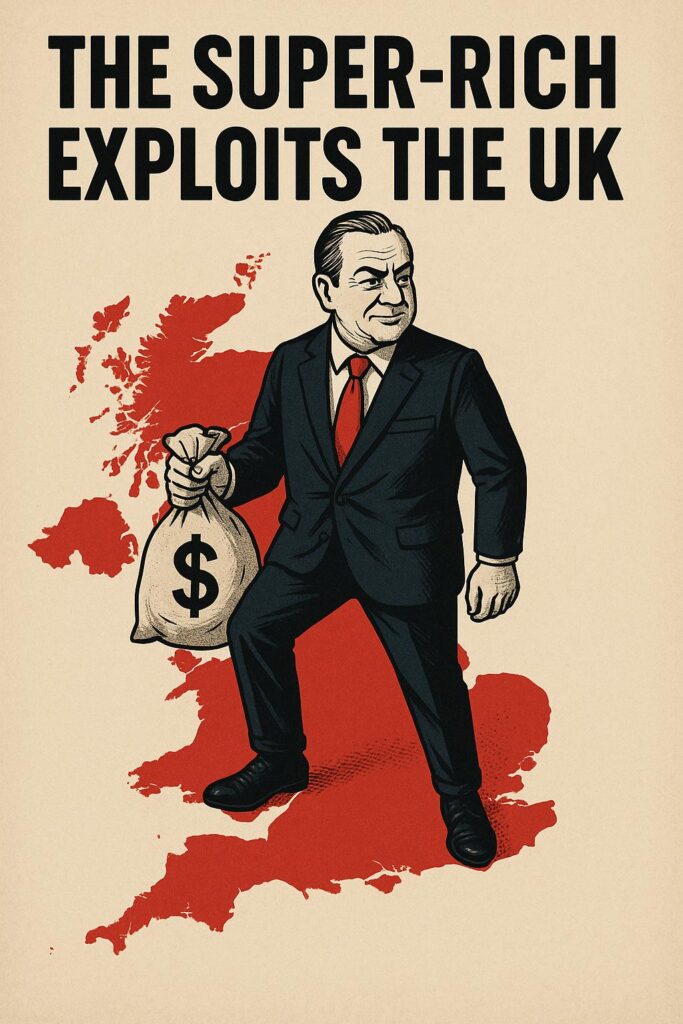Britain once ruled seas and minds. Today, it rules distractions. Turn on any screen, and you enter a circus of outrage. Not over stolen wealth. Not over corporate manipulation. But over the same tired decoys.
While ordinary citizens argue about junkies and immigrants, the real power brokers—super-rich families, interconnected banks, corporations, and perhaps even secret societies—continue unchecked. Their influence grows, but their names vanish from the news.
The noise: Distractions that stick
Every day, the media delivers another tale. Immigrants are draining the system. Muslims are not integrating. Junkies abuse welfare. Yobs terrorize neighborhoods. These themes dominate front pages while offshore networks grow richer.
There is always another wedge issue. LGBTQ controversies. Allegedly good jail conditions, allegedly weak army. Allegedly lenient sentences and judges. Every one of these themes draws public emotion—and distracts from elite control of the economy.
They repeat celebrity scandals like rituals. They release selective political leaks timed to deflect attention. One week it is an abusive priest. The next, a manufactured controversy over a leftie council’s budget. Nothing truly informative. Everything polarizing.
Crime stories focus on minorities and street-level violence. Always a gang. Always a stabbing. Rarely a bank fraud. Rarely a political donor. The boy who robs a corner shop makes the front page. The banker who launders billions is quietly promoted.
Criticism of politicians, even when justified, is framed as character assassination. Or when unjustified, amplified to destroy opponents. Political personal attacks replace policy discussion. Euthanasia, statues, and pronouns dominate conversation while wealth transfers escape scrutiny.
Palestinians appear in headlines not as human beings, but as tools to spark arguments. Minorities are used to stir resentment. The have-nots are blamed for problems caused by policy failure.
Fearmongering sells. Personal attacks engage. False economic perspectives reassure the disillusioned that things are better than they seem. And so populism rises—not as rebellion, but as controlled opposition.
The British: What they distract them from
While citizens rage over culture wars, real power sits silent. The super-rich families that own half the country. The big interconnected banks that create debt and extract value. The corporations that dodge taxes while demanding subsidies. And behind some curtains, even secret networks, informal alliances, old-money dynasties and private intelligence setups operate with near-zero media mention.
Britain’s surplus-value—what its people produce beyond their wages—vanishes abroad. Trillions leak into offshore accounts. Yet people are told to blame refugees or left-wing councils.
Political turmoil grows. Unpopular policies pass quietly. Every time a tax cut for the rich is announced, a scandal hits the front page. Every time a major contract goes to a donor, another celebrity melts down on Twitter. Coincidence? Possibly. Strategy? Likely.
Meanwhile, policy failure multiplies. Wages stagnate. Prices soar. Infrastructure decays. Yet the public is fed a false picture of growth, trade, and national strength.
Education collapses. Science funding dries up. No investments in discovery. No long-term vision. And so innovation dies quietly while the country argues about school uniforms.
Can’t afford home? Blame everyone but not the super-rich
Social injustice becomes the norm. Homelessness spreads. Young families cannot afford homes. Yet rather than talk about structural failure, media blame personal choices.
Corruption increases. Laws are bent to protect donors. Cronies receive contracts. Watchdogs look away. And still, it is the poor who fill the prisons, not the financiers who rig the system.
White-collar crime remains invisible. No headlines scream about corporate fraud, environmental theft, or lobbying-for-policy. The most harmful crimes wear suits and escape justice—while those committed in hoodies are televised.
The topic of eugenics—taboo but vital for long-term stability—is never discussed sensibly. The country cannot afford children, yet dares not ask why. Meanwhile, chaos grows generation by generation.
Human rights violations are no longer rare or foreign. They happen daily in housing courts, job centers, and neglected hospitals. Economic abuse joins physical and legal ones. But again, the focus stays elsewhere.
Who benefits?

Distraction serves those who own the system. Super-rich families. Global banks. Corporate monopolies. In some cases, silent power networks and intelligence-linked groups. These players do not need votes. They need confusion. And the media provides it.
Each scandal keeps the population off-balance. Each culture war keeps workers fighting one another. Every distraction is a firewall around concentrated wealth.
Behind the noise stands a small group. They do not care who wins a debate about statues. They care about keeping their trillions. And every time attention turns toward them, a new controversy erupts.
Distractions on the British: The result
Make no mistake. I am against all of the pathological phenomena. It must be punished, changed and so on. But when the super-rich families (even the Royal Family) own the majority of the wealth while people struggle, I cannot do anything but to write this article.
Your enemies are obscenely rich bankers and super-rich families who run the country, clog the entire political process, make you dependent on a mortgage they could give away as a gift. But no, here are distractions.
These phenomena definitely do not exist only in Britain but since I read British media, I showed example of this. Another factor is that British people are really angry – with establishment, but not who pulls the strings.
Distraction works. People stay angry, but powerless. They shout at neighbors, not lawmakers, they fear Muslims, not bankers. They blame immigrants, not billionaires. And through it all, the real rulers smile.
Britain is not stupid. It is hijacked. Not by ideas, but by owners. It has lost its focus. Lost its purpose. Lost its grip on who really pulls the strings.
But the facts remain. Real power hides in banks, boardrooms, dynastic networks, and institutional alliances. And until attention shifts, nothing else will change.

Leave a Reply